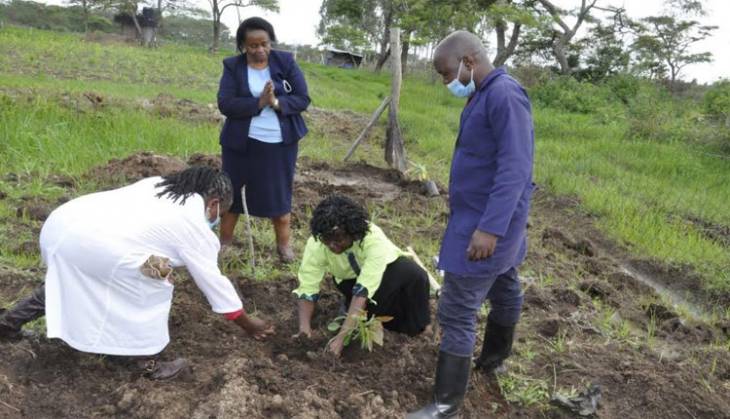Top university embarks on mission to promote Hass avocado farming
By Wahinya.Henry, January 11, 2022Johnson Kibue had visualised how his retirement would be like after he retired as a primary school teacher seven years ago. He had decided to settle, not just on avocado farming, but on a specific variety, Hass avocado.
He practices the venture in the outskirts of Nyeri county in Tetu Sub-county, Githakwa village and has since not had any regrets.
“Unlike the old days, farming is different today. Most farmers, especially in my area used to grow tea, coffee and maize, and if there was an avocado tree, it would be in a corner somewhere.
Nobody cared about it, nobody even remembered it until it matured,” says Kibue adding, “It was purely peasant farming with no intention of making money. That avocado tree probably wasn’t even planted or cared for.
However, the tree farming has adopted a different meaning for commercial purposes, especially when it comes to Hass avocado farming.
Kabue did a thorough analysis of the market and his land and decided to contact Hass avocado seedling sellers.
He had several options, but later decided to buy 200 seedlings from Oxfam Kenya, an organisation that works with local groups to build resilience.
Export market
Kibue is one among the growing number of avocado farmers in Kenya who is a figure of authoritity at the Jomo Kenyatta University of Agriculture and Technology (JKUAT) Juja campus, as the institution plans to enter the fruit export market.
The tree planting excercise, which is also set to be devolved to the counties kicked off in earnest at its main campus inJuja recently, bringing together members of staff from the Research, Production and Extension (RPE) division, and the University’s marketing company, JKUAT Enterprises Ltd (JKUATES).
Deputy Vice Chancellor RPE, Prof Mary Abukutsa, lauded the initiative citing the immense benefits, which include tackling climate change, as well as boosting food security and nutrition due to its superfood status.
This, she further added, would contribute to fulfilling the University’s mandate of increasing its tree cover as part of its strategic plan.
The university farm, represented by Naomi Nduhiu, pledged to maintain the upcoming enclosed orchard, through adequate irrigation, especially during the dry months, as well as pests and diseases control. This will ensure that the harvest comes to fruition.
With JKUATES not intending to rest on its laurels, the project is anticipated to boost the economic outlook of the institution. Notably, Hass avocado seedlings can produce up to 3,000 fruits in a single harvest.
The exercise was also attended by Dr Patrick Mbindyo from the Research Directorate and Charles Mutuma, head of the department of Horticulture Nursery JKUATES, among others.
According to Oxnard, the largest distributor of avocados in the world, avocado sales to China this year is expected to double compared to a similar period last year.
China one of the world’s largest importer of avocados, imported 32,100 tonnes (32.1 million kilogrammes) of the fruit in 2017 up from 31800 tonnes (31.8 million kilogrammes) in 2011.
In Kenya, the price of a 90 kilogramme bag of avocados has risen in three and half years to Sh2,560, the highest price since 2014, according to the Directorate of Horticulture.
Kenya is the world’s third largest producer of avocados. It’s also Kenya’s leading fruit export, accounting for nearly one-fifth of its total horticultural exports, but Kenya only exports 10 per cent of its total avocado production. By comparison, Chile exports 55 per cent and South Africa exports 60 per cent
Avocado is grown in several parts of Kenya and about 70 per cent of avocado production is by small-scale growers. They grow it for subsistence, local markets, and export purposes.
The avocado export market in Kenya is dominated by five major exporters: Kakuzi, Vegpro, Sunripe, Kenya Horticultural Exporters, and East African Growers. These companies source their avocados primarily from smallholder farmers, although some firms also source from larger growers or own plantations.
In Africa, Kenya is the second largest exporter of avocados after South Africa.
Kenya’s dried avocado export has been rising, with the country selling 46.7 tonnes (46700 kilogrammes) to the international market in 2016.
The figure was higher by 7.8 tonnes (7800 kilogrammes) than what was exported in 2015. Kenya earned Sh6.5 billion and Sh5.2 billion in 2016 and 2015 respectively, according to the Kenya National Bureau of Statistics.
